Hi ! We hope this site helps you! ٩(ˊᗜˋ*)و As an Amazon Associate, we earn from qualifying purchases without additional cost. Click to read more about our Privacy Policy or Affiliate Disclosure
This article will write about the method and physical supplies you will need to start learning Japanese, for articles about mental preparation, you could check our previous article: The Start of a Journey, Introduction about Japanese Grammar and Is Japanese Hard? What is the best method to start learning Japanese?. Well then, let’s start! 始めましょう!
The 2 Main Road to Start Learning Japanese
Mainly there are 2 routes to learn Japanese. The first one is the integrated route, by using books such as Genki and Minna no Nihongo. Now, now… This route seems to be the most popular, but we don’t really recommend it. Not that it wasn’t good, but it is more challenging for self-learner and much more expensive than the 2nd route we recommend below.
The reason as to why Minna no Nihongo is a very popular book is because it is indeed a much better book than average Japanese learning book and has been used for a long long time. But if you have checked out the book, you will notice that it’s quite disheartening for first learner since it doesn’t have any English text and written fully in kana & kanji. So it’s quite hard to be able to understand about each grammar pattern if you’re self learning.
About Genki, it actually provide a good English explanations! But the problem is that there are no answers provided for each practice questions, so you cannot self check unless you buy Genki’s answer key book (This book provide answer keys for all Genki 1, 2 and both workbooks.
The 2nd route and the route which we recommend is by learning with JLPT material and a few specific book. JLPT is Japanese Language Proficiency Test. It doesn’t mean that you have to take the test, but instead you learn using materials that is reviewed on the test. This route cost much less than Genki & Minna no Nihongo, but is also as effective.
The only things you need
These are all the books you need to master basic Japanese:
• TRY! Japanese JLPT N5 grammar with CD (For JLPT N5 lessons)
• TRY! Japanese JLPT N4 grammar with CD (For JLPT N4 lessons)
• Shin Nihongo 500 Mon JLPT N5 – N4 (For exercise)
• A Dictionary of Basic Japanese Grammar (For thorough grammar explanations) or Understanding Basic Grammar (Pick one).
• Pick a book you like for reading practice material(Complimentary)
Before you use the book
Make sure you have learn about these material below before start using the book.
1. Learn Hiragana
2. Basic Japanese material:
– Understanding Japanese type of verbs & adjectives
– を particle
3. Learn Katakana (can be postponed)
Things to note about each book
These books are written in Japanese and only have little English explanations for each grammar. You will need to see dictionary often to work through the book. (so get yourself an offline dictionary on your smartphone: IMIWA for apple | Takoboto android). But what makes it unique is how they give description for the grammar in a natural way and don’t try to give English equivalent for the grammar. It makes the learning process more logical and make sense.
The TRY! book
The TRY book is a book to learn grammar points of each JLPT, give a very descriptive explanation, some tips, and practice for each points. It is also come with a CD, for pronunciations, listening practice and comprehension test. And that’s not all… By the end of each book, it gives you a mock up JLPT test, so you can test out your skills! This book really is an all in one package! (๑•̀ㅂ•́)و✧
Below, in grammar point 31. It’s teaching about how to use
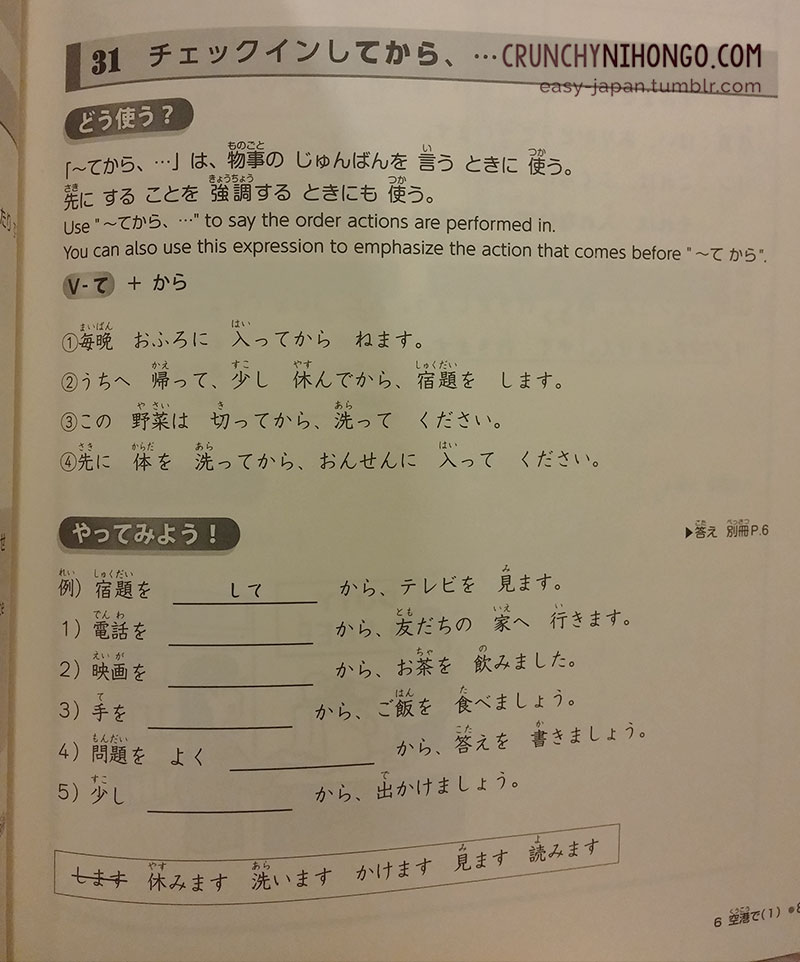
In the samples above, it explains that (Action A
The Shin Nihongo 500 mon
This Shin Nihongo 500 Mon book is a question book that is tougher than JLPT N5 test. And the book actually rehearse points from N5 – N4.
The book gives simple yet effective explanations for each questions. And one of this book’s feature is how they divided 3 type of questions.
1. To learn vocabulary & kanji reading
2. To learn phrases, and
3. To learn grammar.
Here are the questions. Most questions are harder than actual JLPT test. There are actually 3 type of the questions as described above. But we only manage to capture 2 of them or it would be so small that you cannot take a good look at them. The first image is the front question and the 2nd is the back which reviews & give quick explanation about the answer to the question.
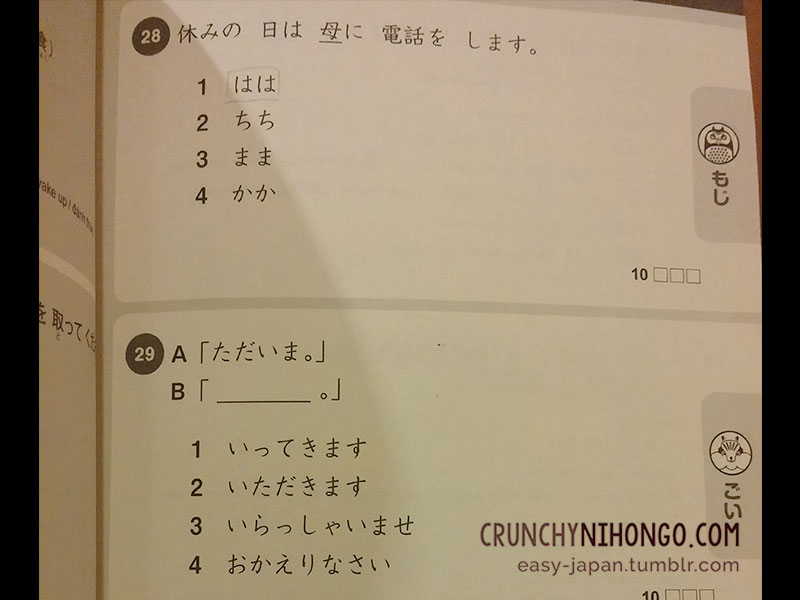
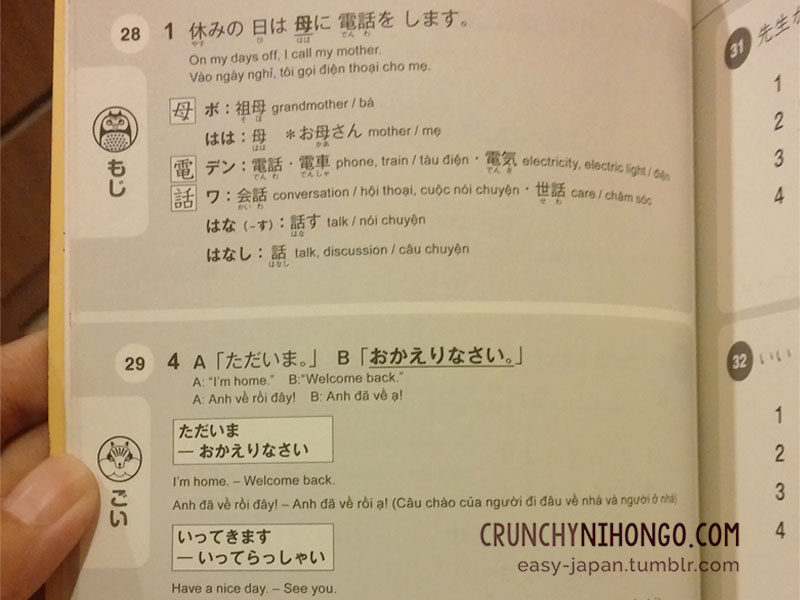
Books for Indepth Understanding of Japanese Grammar
These books below are complimentary, but if you’re doing a self learning, it’s very recommended since it will help you to explain the basic of Japanese grammar to smooth out your journey. There are 2 different choice you can pick from
Serious & Complete Dictionary
The dictionary of Basic Japanese grammar helps to give detailed explanations regarding grammar such as particles. Below, it’s explaining about particle
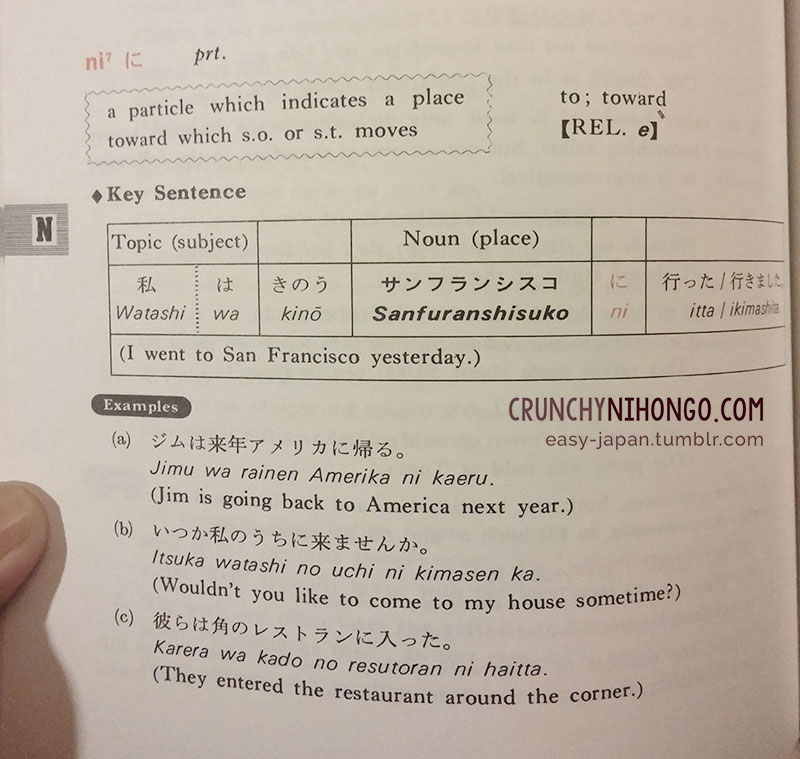
By the end of explanations, it will give you summary of the behaviours of
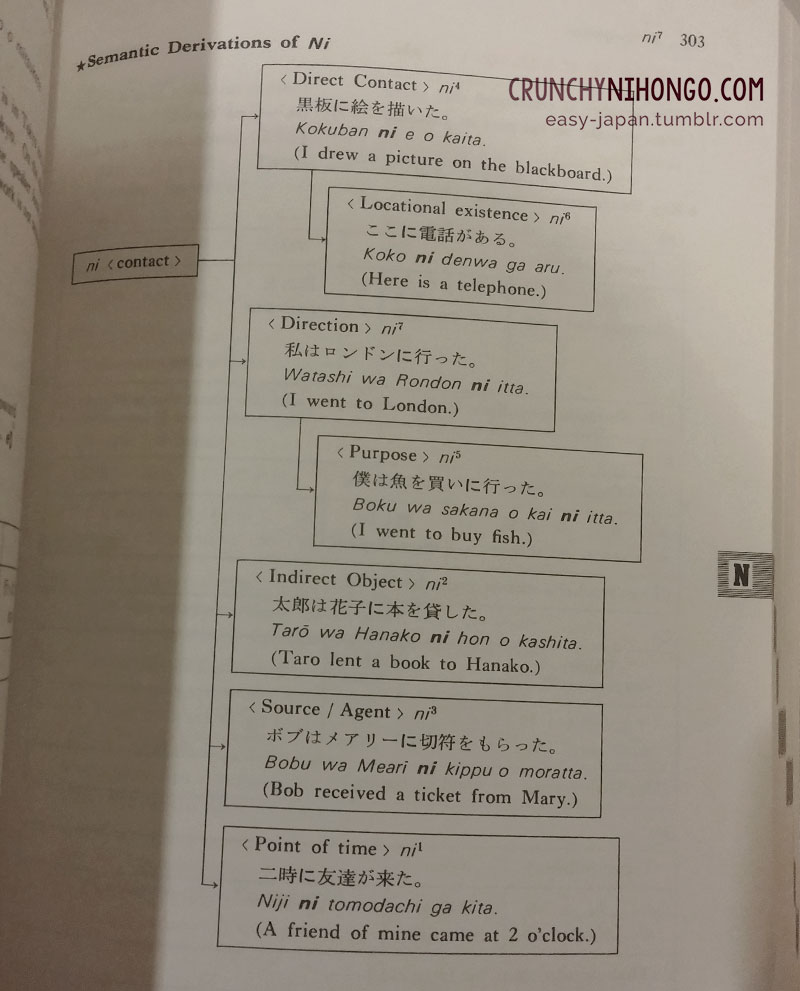
Simple & Easy to Read Explanation
While the dictionary is a complementary book, this one can be read on it’s own~ It cover very basic grammar such as different between ます and plain form. With this, you will have a good basic foundation to read manga even if you haven’t learn JLPT material, Minna no Nihongo or Genki.
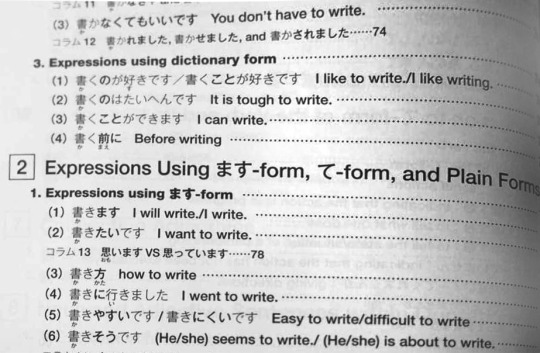
You can just pick one of this dictionary. But if you have budget, we recommend both. The dictionary of Basic Japanese grammar is more serious and have a more complete list, but Understanding Basic Grammar is easier to read and cover basic conjugation such as
And that’s all material you need to start learning Japanese! What next you ask? Start learning ofcourse! Use TRY book as your main book and try to do 1 grammar pattern per day. You should finish N5 books within 1 – 2 month!
Good luck with your journey to study Japanese! And remember, don’t give up! Even if you stumble, try to at least finish the TRY book and then give yourself a pat on the back 。゚✶ฺ.ヽ(*´∀`*)ノ.✶゚ฺ。

where can I find the answers to the practice questions in TRY N5?
The book should have all the answer at pages around the end of a book 🙂